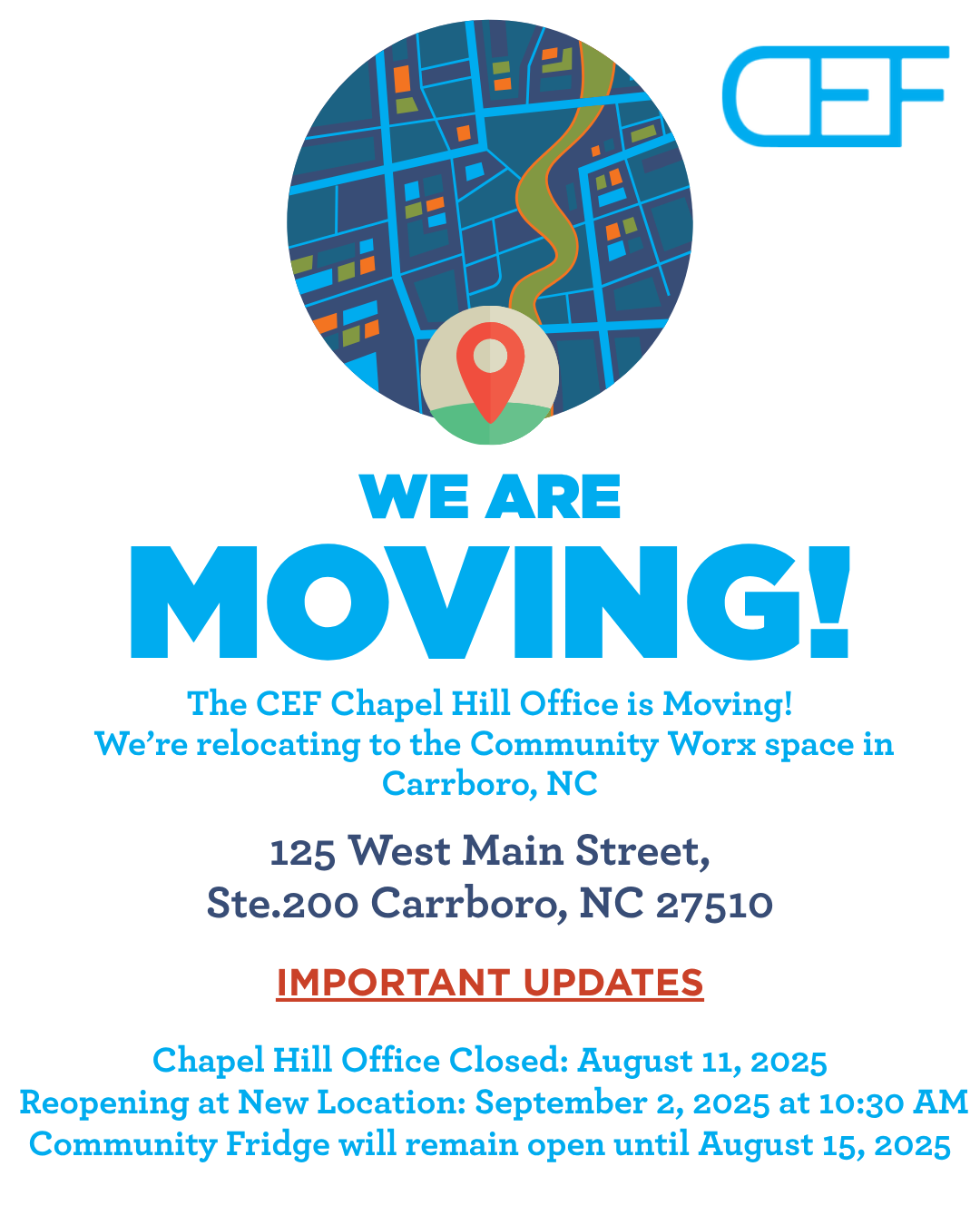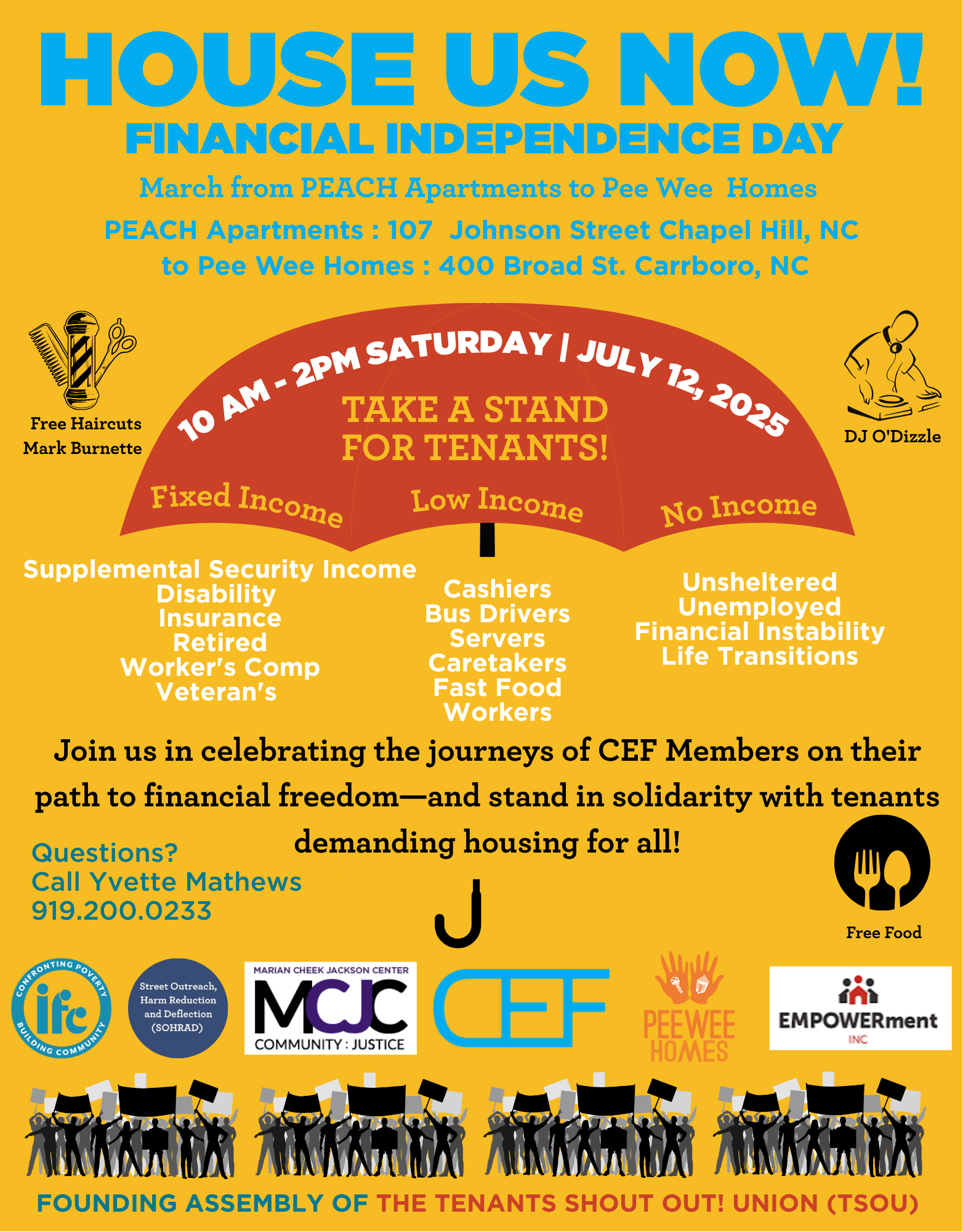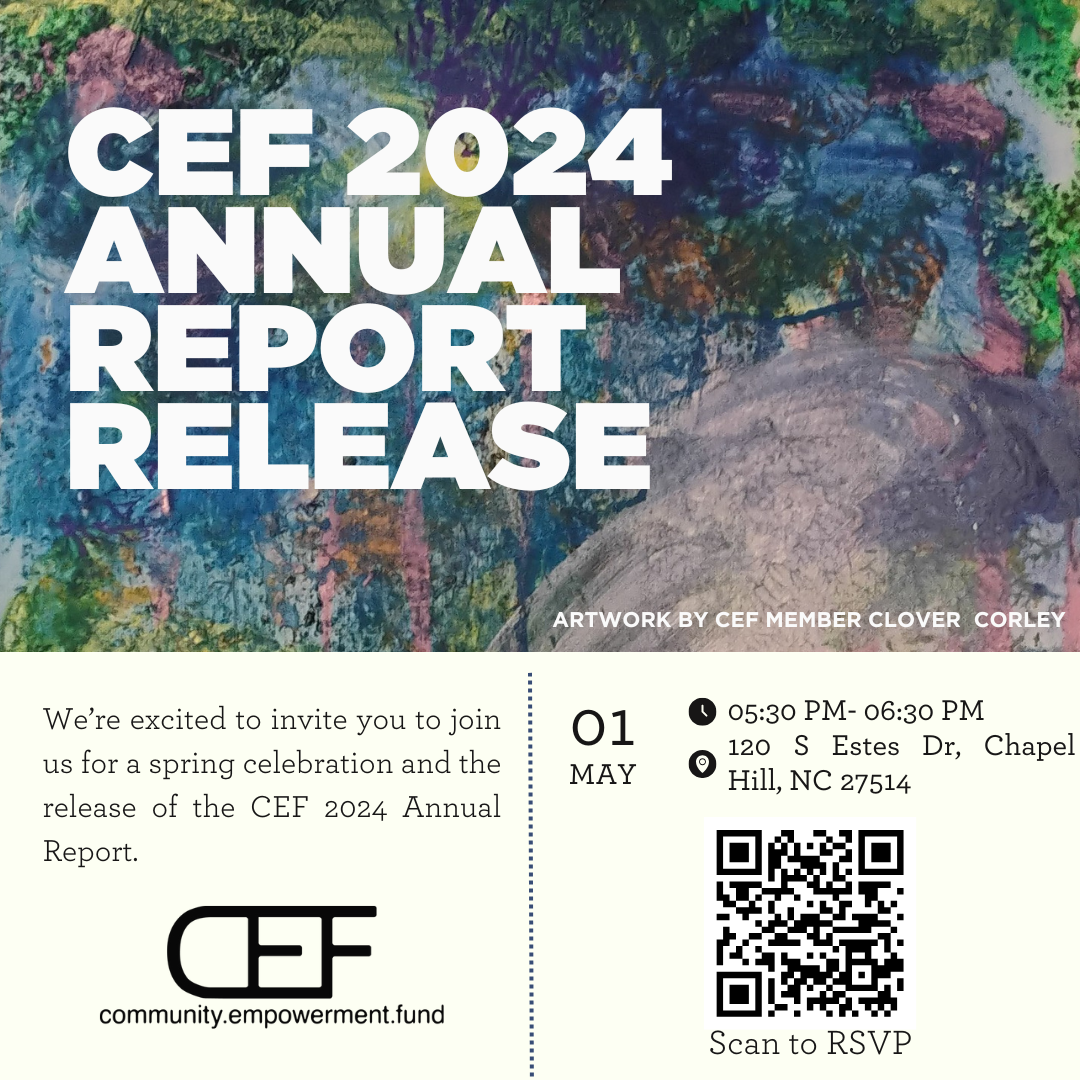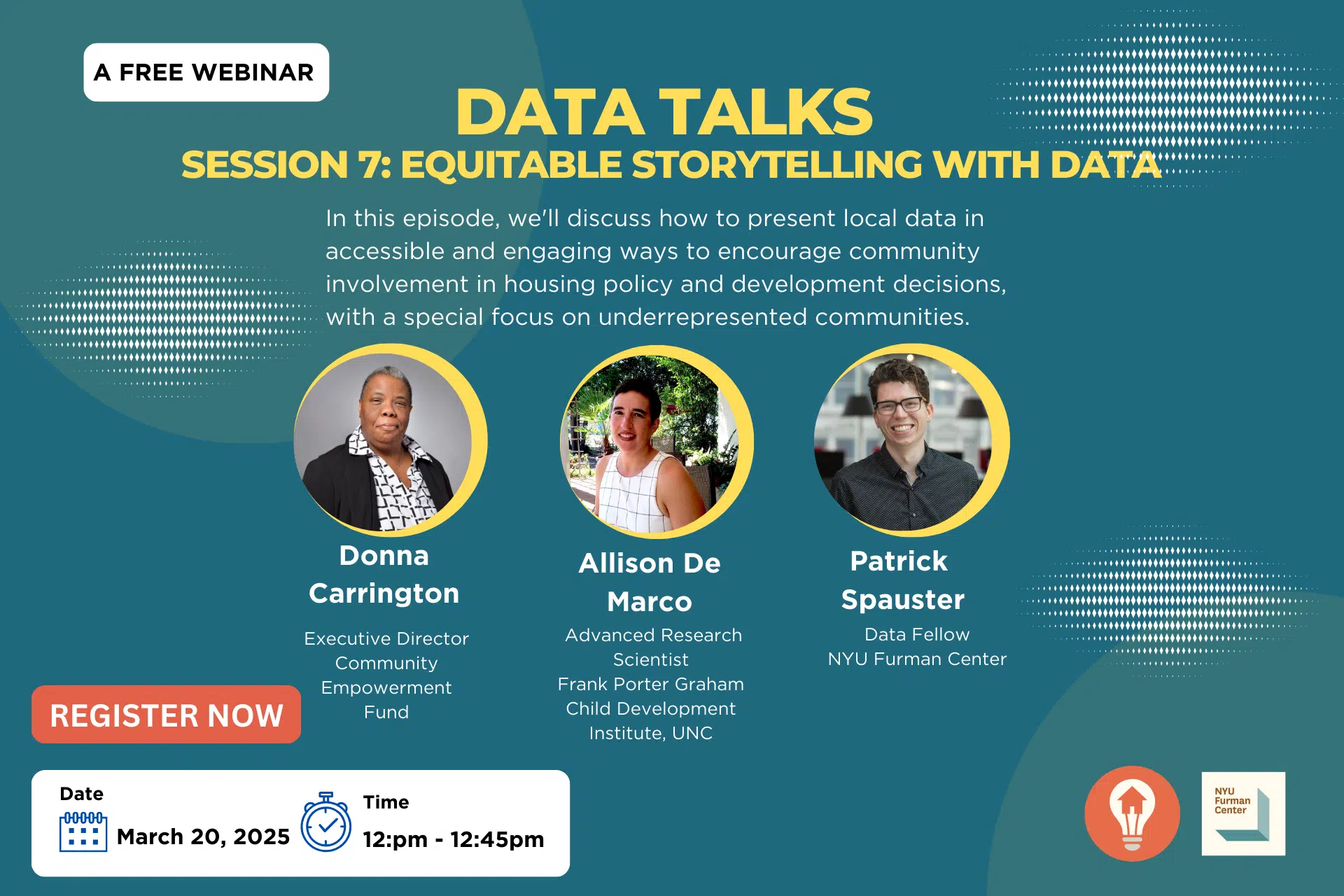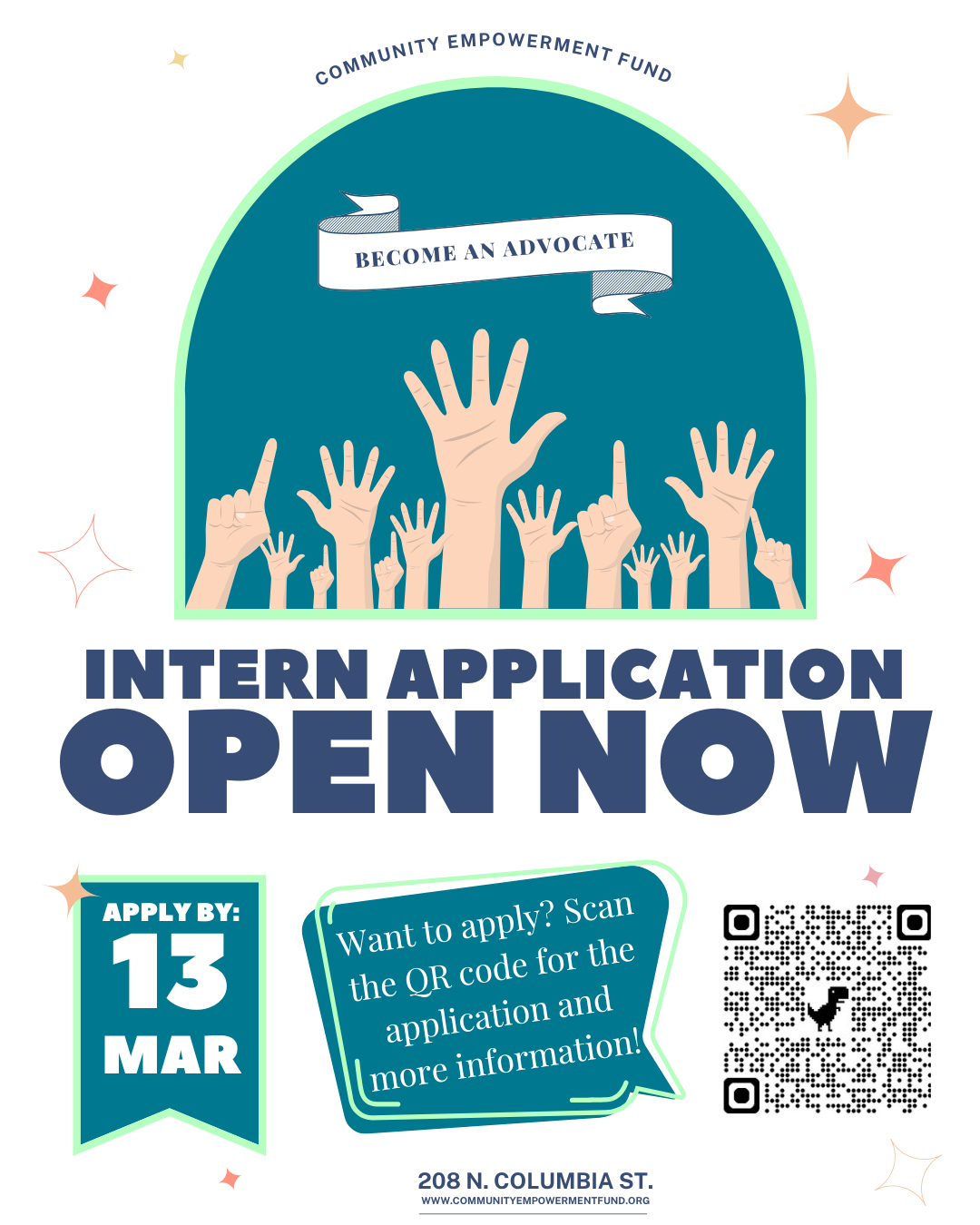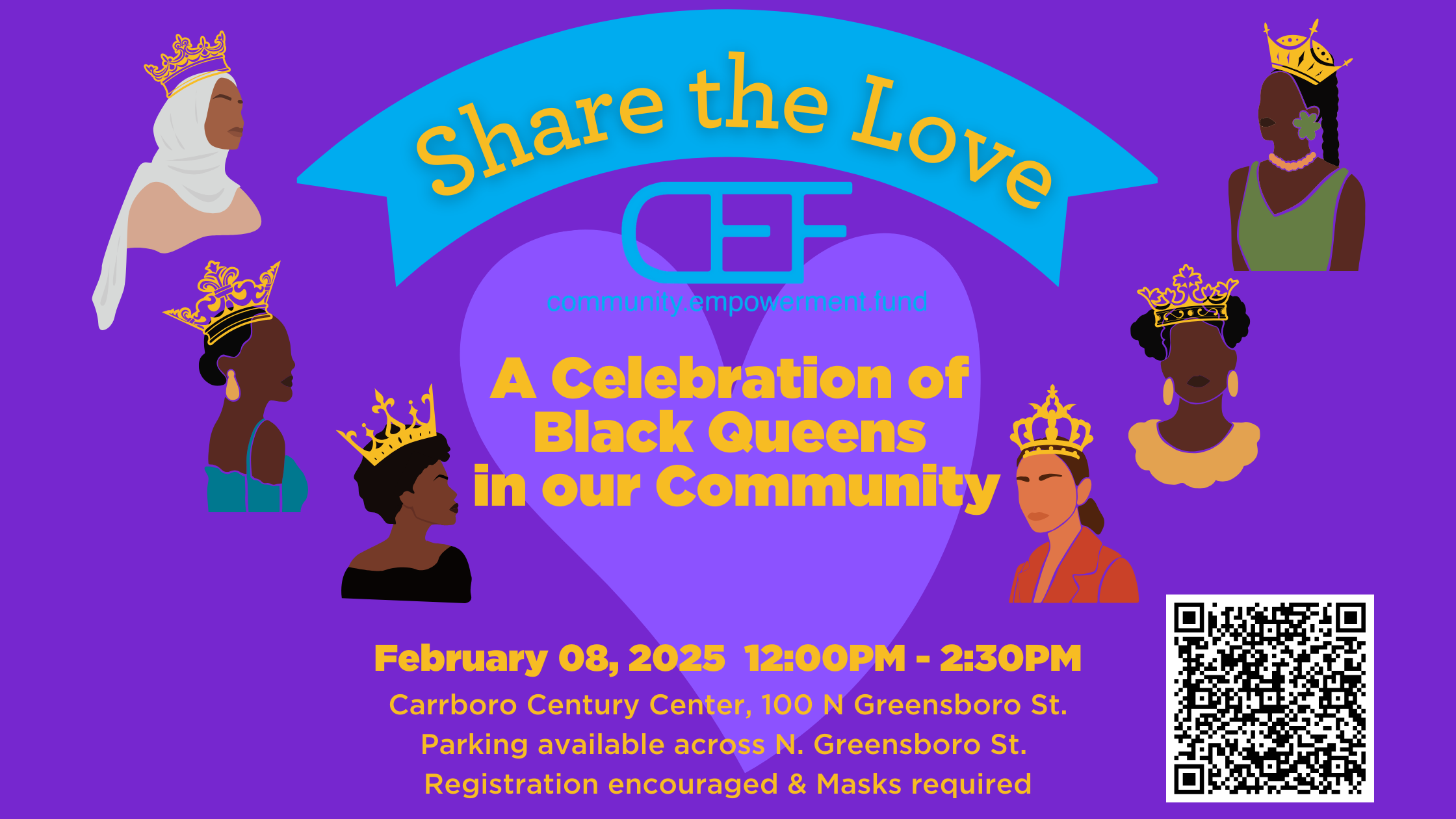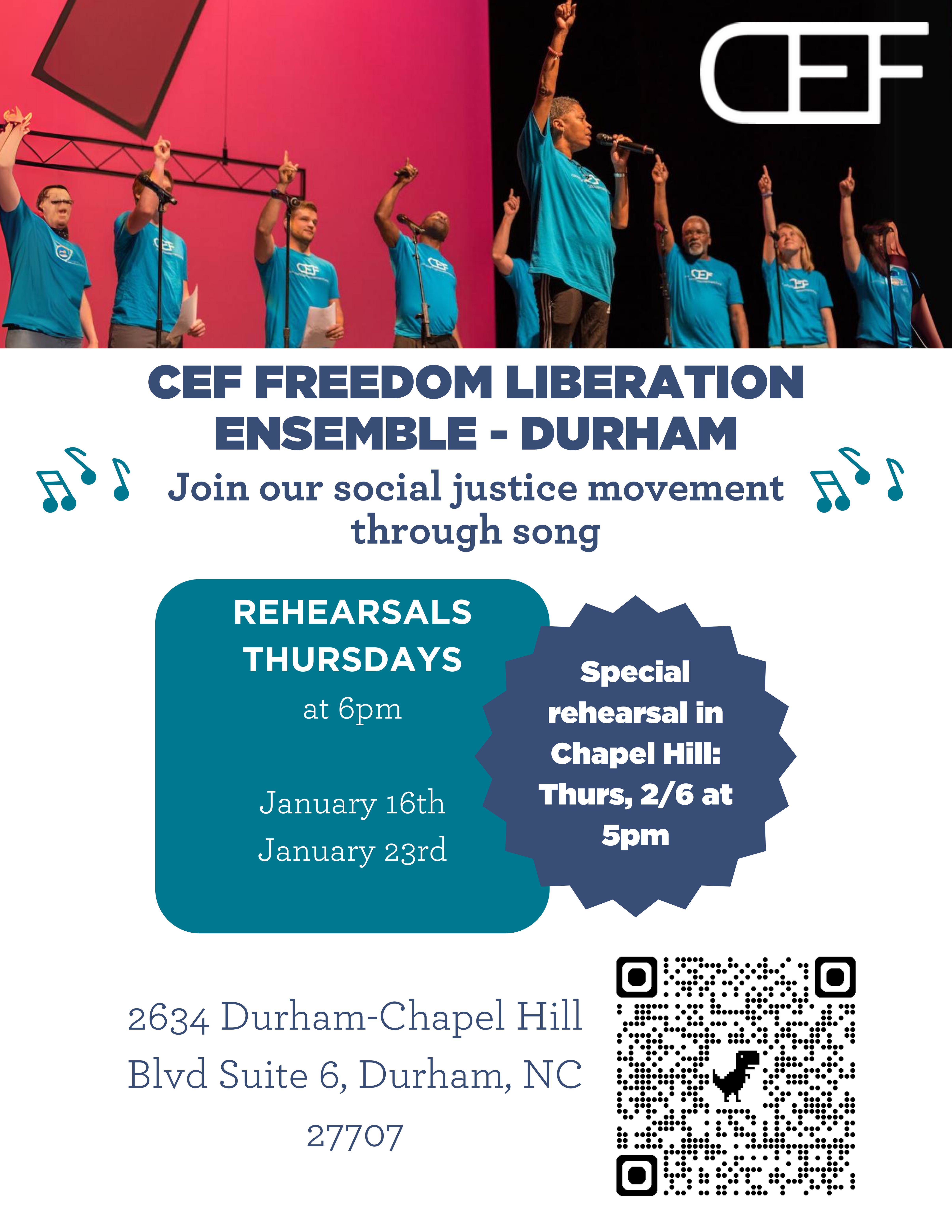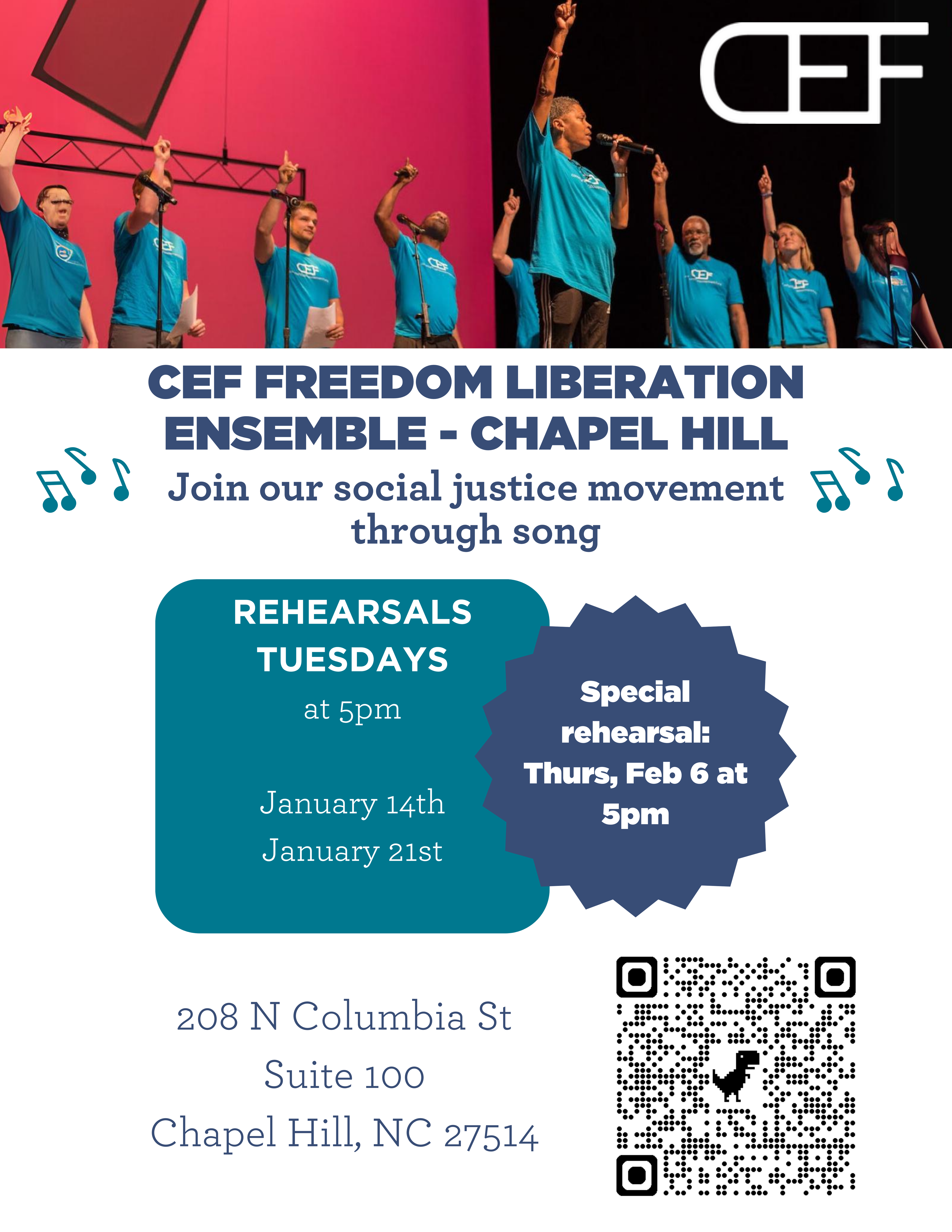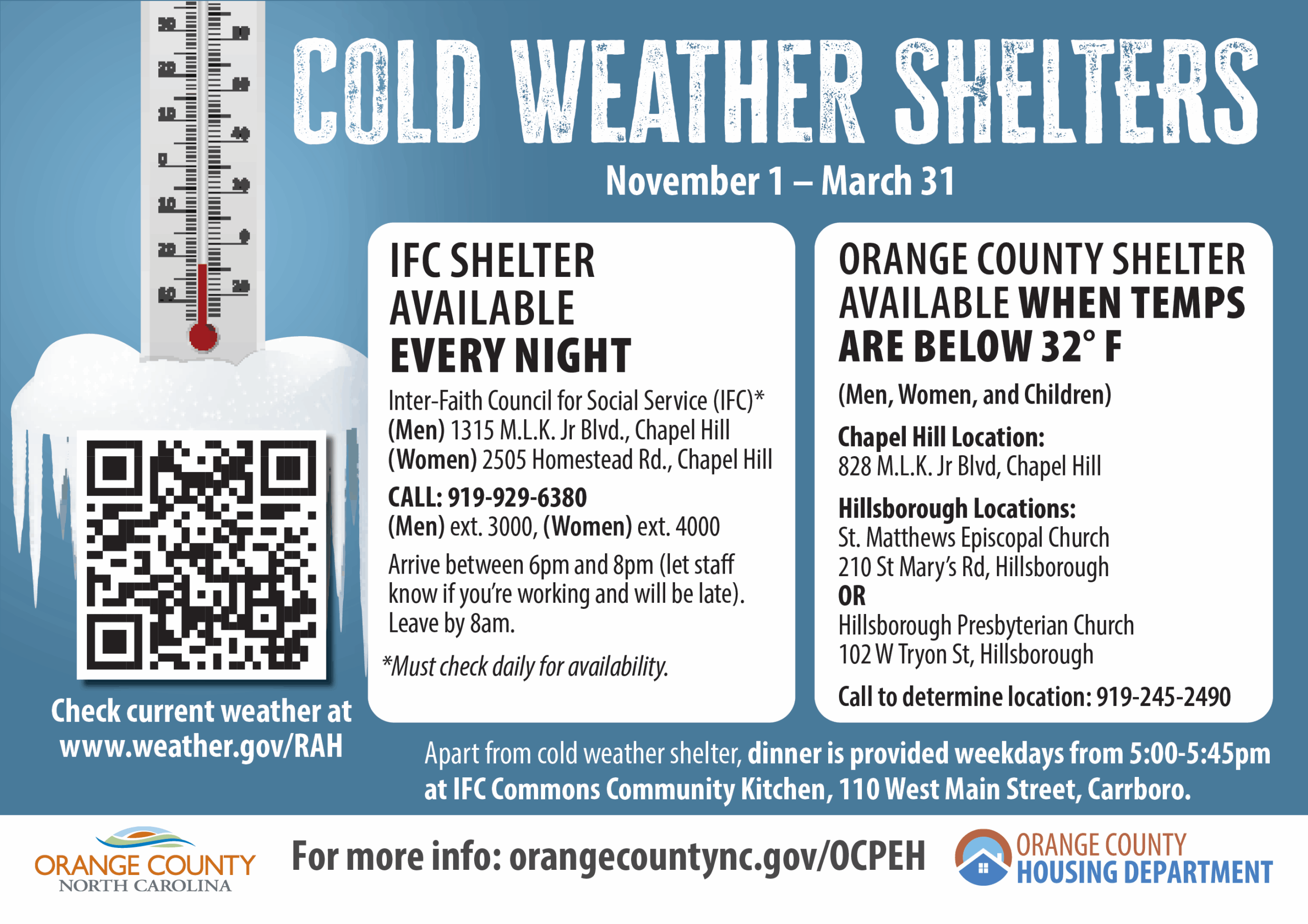
The cooler weather has arrived, and Inter-Faith Council for Social Service (IFC) is working hard to prepare accommodations for additional overnight guests this season.
From Friday, October 31 through March 31, IFC’s Community House and HomeStart will provide cold weather shelter on consecutive nights. We’re beginning one day earlier this year to help guests get settled in before the weekend begins.
- HomeStart can accommodate 3 additional women
- Community House can accommodate 17 additional men
How to Access Cold Weather Shelter
Individuals seeking shelter can reserve a spot by calling IFC’s main number: (919) 929-6380
- Press x3000 for Community House
- Press x4000 for HomeStart
Starting October 31 at 11am: Staff will begin taking calls and adding names to the list.
Beginning November 1: People can call after 4pm daily to check for open shelter slots.
Arrival and Departure
- Guests should arrive between 6pm and 8pm nightly
- Departure is by 8am each morning
- Guests may keep their cold weather bed by checking in every night. If a night is missed, they’ll need to call again to be added back to the list.
- Guests must provide their own transportation (Chapel Hill Transit is available).
Meals at IFC Commons
- Continental breakfast: Begins at 10am (dependent on donations and availability)
- Lunch: Served daily at 11:15am
- Dinner: Served Monday–Friday at 5:15pm
Please note: Cold weather guests should eat before arriving at the shelter, as dining and kitchen facilities are not available in the evening.

